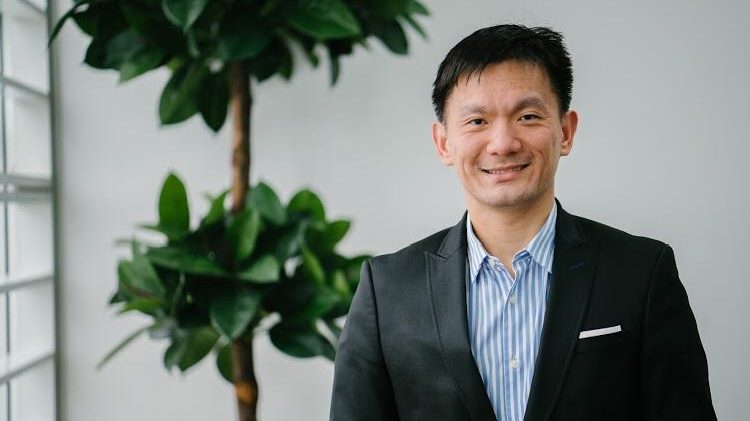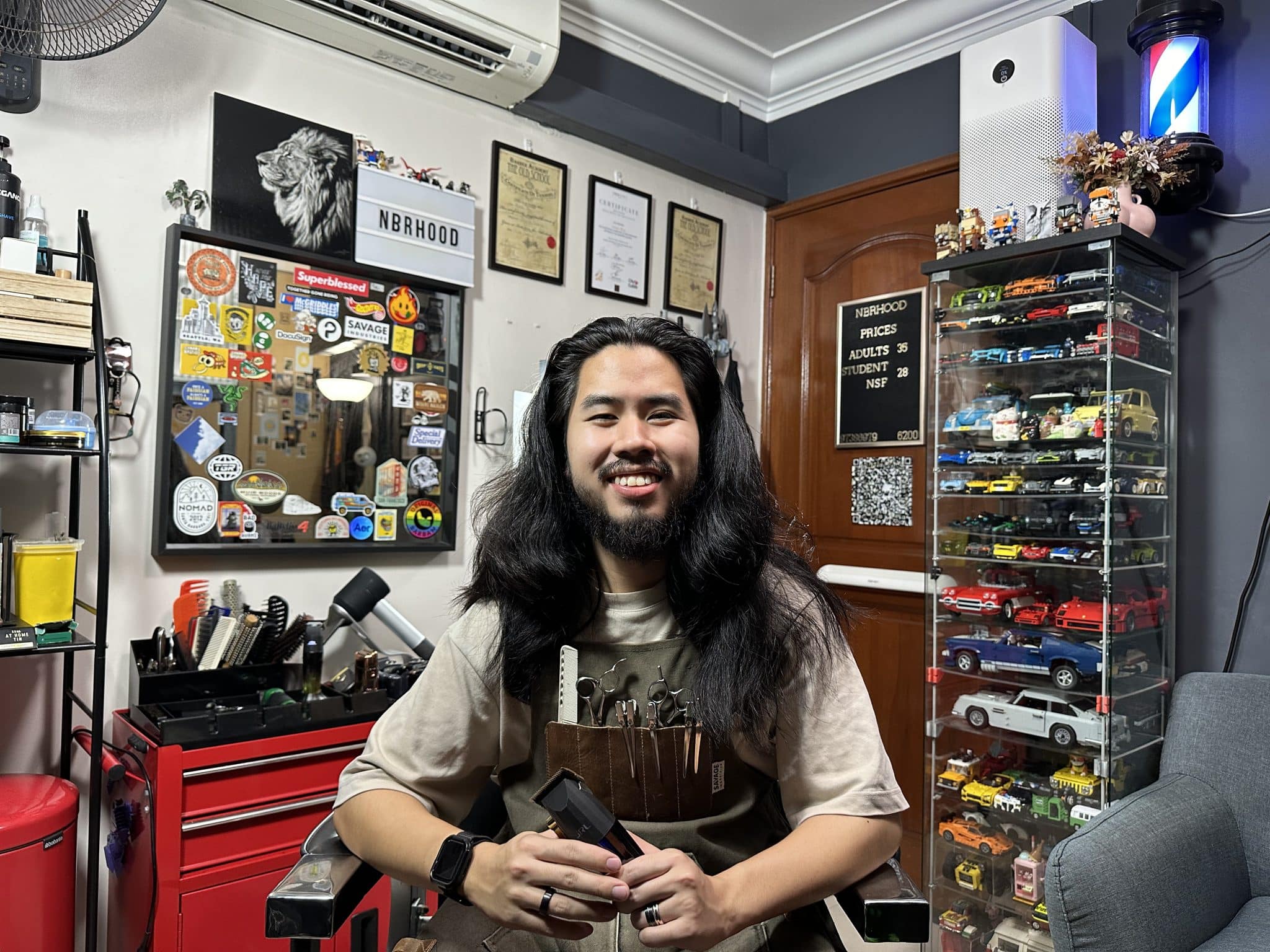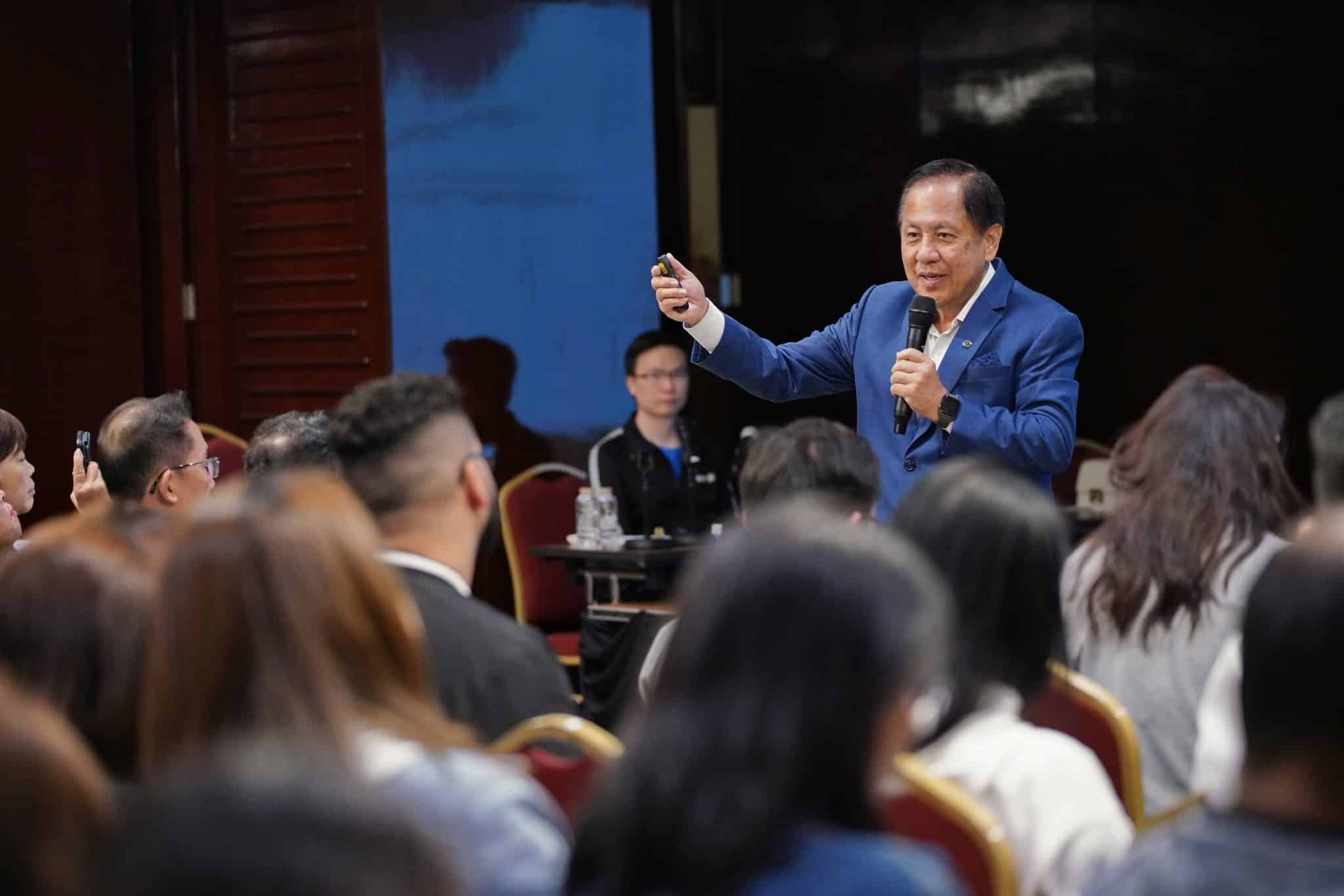“Despite everything, the Lord hovered over me and showed His love”: Engineer who faced harassment and threats working overseas
by Janice Tai // March 26, 2021, 12:40 am
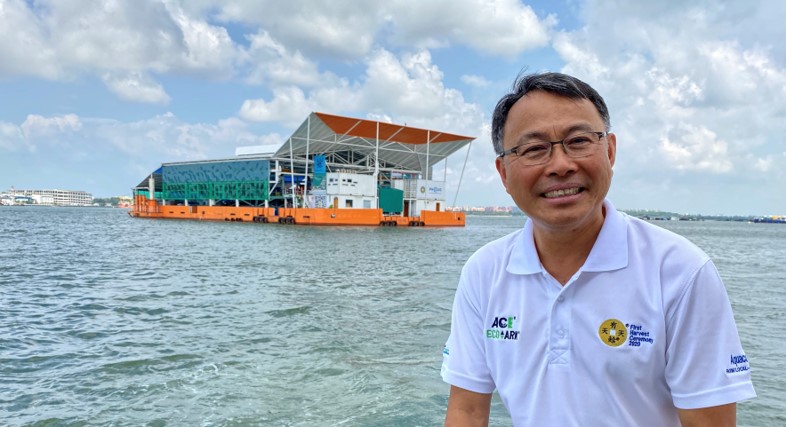
“My tough time in Brazil and the scary decision to empty out all my money at the age of 60 and stake it on a new business idea were all experiences that were guided by God,” said Mr Leow, seen here at his Eco-Ark fish farm (in the background). All photos courtesy of the Leow family.
Leow Ban Tat was working with Singapore shipbuilding firm Keppel Fels in Brazil when the biggest corruption scandal Singapore had ever seen unfolded.
“I cried a lot but God gave me strength to face things in the world and fight for things I need to stand up for.”
In December 2017, Keppel O&M, the offshore and marine arm of Keppel Corp, was fined a hefty sum of US$422 million for its part in an international corruption scandal that took place between 2001 and 2014, with bribes amounting up to US$55 million.
The penalty – among the top 10 highest penalties paid in the world after being prosecuted under the US Foreign Corrupt Practices Act – came after a global resolution with criminal authorities in three jurisdictions, namely the United States, Brazil and Singapore.
Back home, Keppel O&M was served a conditional warning by the Corrupt Practices Investigation Bureau, which it accepted.
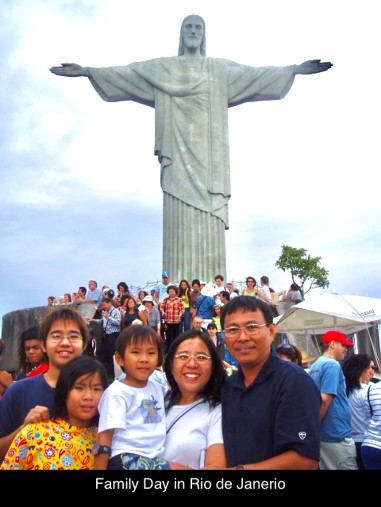
Mr Leow and his family in Brazil.
It is now public knowledge that Keppel was not the only company that was bribing them for business. Many other global corporations were doing the same thing.
To harass and intimidate him, he would be sent recordings of the voices of his wife and children having dinner.
The challenges Leow faced were overwhelming.
“As Christians, we need to call a spade a spade, especially if we are in the marketplace and faced with ethical decisions. There is no excuse for sin,” said Leow, who was Executive Vice President with Keppel Fels in Brazil between 2003 and 2008.
“Despite the tenuous and difficult time overseas the Lord hovered over me and my family and showed me His love.
“That is why I can sincerely say with the Psalmist that ‘I would rather be a doorkeeper in the house of my God, than to dwell in the tents of wickedness’.” (Psalm 84:10)
Threats and intimidation
The worst part of the consequences for Leow in standing by his principles was not in losing money or power. It was having the safety of his family threatened.
People in Brazil who knew he was not “cooperating” harassed and intimidated him by sending him audio recordings that showed him that they were tracking him and that they knew all about him.
Leow and his wife were driving back home late at night when they encountered six men with guns.
“After a work meeting with business partners, I would get audio recordings from unknown numbers almost immediately that replayed the dialogue that we just had. For other recordings, I would hear the voices of my wife and children having dinner. When I called home to check on them, my wife would confirm that those exchanges over the dinner table just took place a few minutes ago,” said Leow.
Such chilling warnings of surveillance gave Leow many sleepless nights.
Said Leow: “I cried a lot but God gave me strength to face things in the world and fight for things I need to stand up for. But I was very concerned about the safety of my children and wife.”
Violence, the bearing of arms and robberies by gunpoint are common in the streets of Brazil.
Once Leow and his wife, Amy, were driving back home late at night after dropping his boss at the airport when they encountered six men with guns stopping the cars in front of them. They prayed. The next thing they knew, the men jumped into two cars and took off. It was a close shave for the Leows.
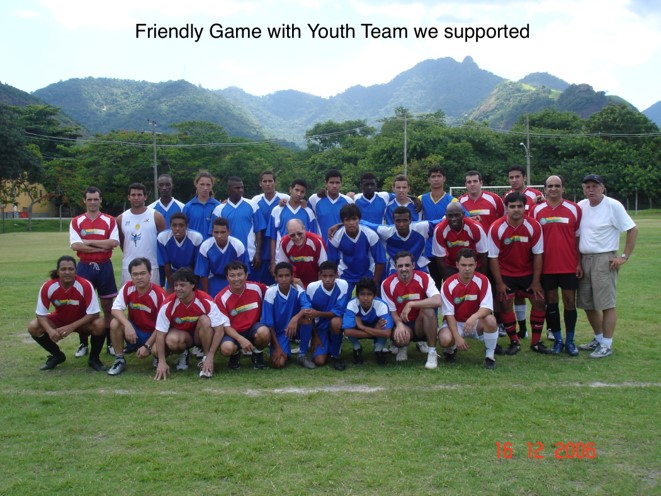
Mr Leow (first row, fourth from left) playing a friendly match with the youth team that his family supported in Brazil.
Crime rate is high in the country as there are segments of people in its society that are extremely poor and marginalised.
The Leow family contributed to a charity that supports street boys in the slums to pursue healthy interests such as football by donating sports gear to them and having their son teach the children English.
Leow also continued to try to live out the values of integrity and professionalism in the projects he handled, choosing to work only with businesses that are legitimate.
Eventually, the pressures and danger to his family became too much for Leow to bear and he returned to Singapore and resigned from the company in 2008. His son was still enrolled in the international school in Brazil then and had to stay on longer for a few months by himself to complete his International Baccalaureate exams.
God’s faithfulness
Leow knew he was giving up a well-paid job in a large corporation and would soon need to find another as he is the sole breadwinner to his family of six.
“When you are willing to stand up for God, there is no need to fear what man may do to you.”
What he did not expect was that God would open doors for him sooner rather than later. He had quit without yet securing another job.
On his last day at work, he bumped into his church friend who had heard of his impending departure. It turned out that his friend’s brother was with ASL Shipyard and he wanted to talk to Leow immediately as they were seeking an executive director.
The next day, they met and Leow joined ASL shortly after.
“When you are willing to stand up for God, there is no need to fear what man may do to you. Be fully assured that God can do the impossible and His presence will be with you even as you embark on a new path,” said Leow.
He headed ASL Shipyard for two years before leaving for Zhoushan, China where he headed PaxOcean Engineering, a shipyard outfit under the Singaporean multinational conglomerate Kuok Group.
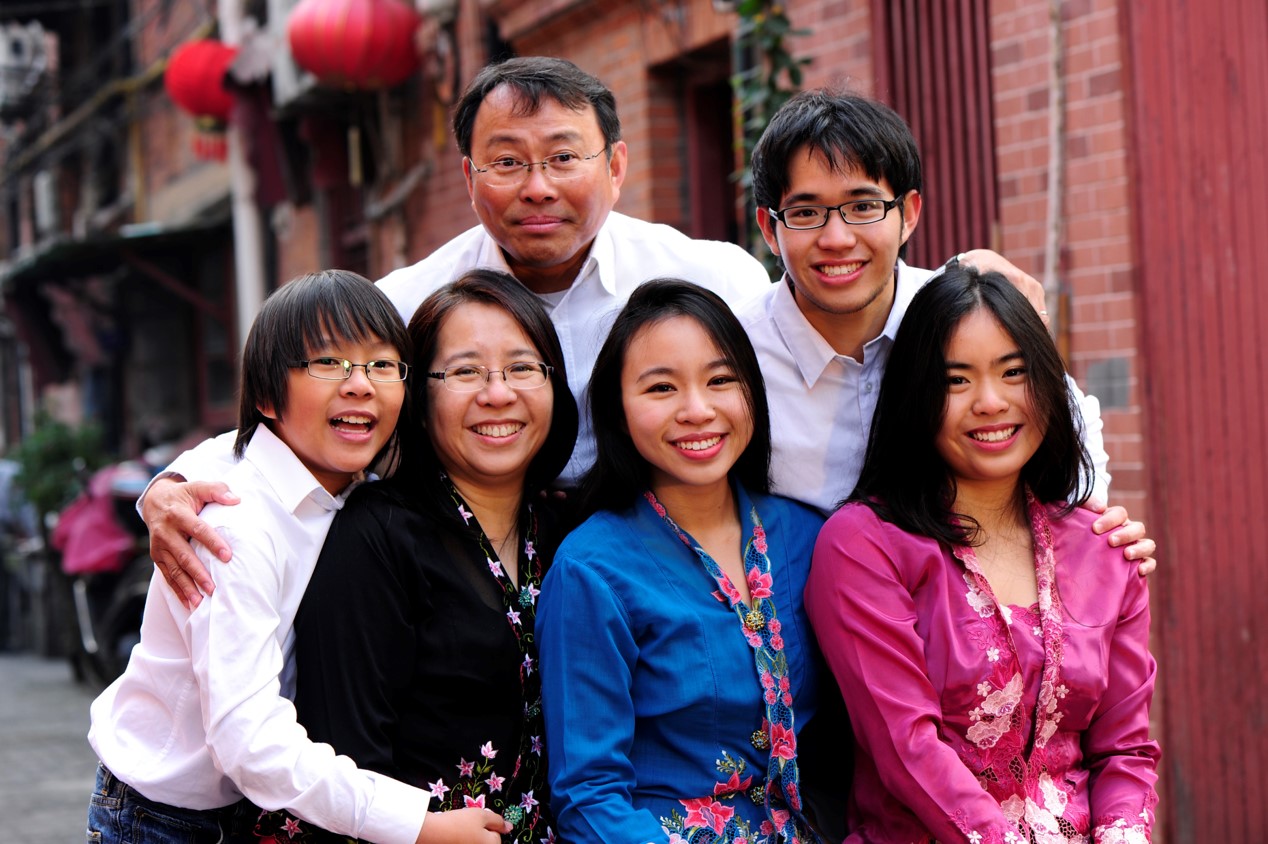
The Leow family at Shanghai Old Street.
Work was hectic and he had to drive three hours every day up from Shanghai where his family lived to Zhoushan where he worked.
In China, they fostered four Chinese orphans with severe disabilities, such as spina bifida, with the Baobei Foundation.
“It was tough as I had to navigate a treacherous environment where business deals were transacted in ways that often involved bribery, alcohol and women. But God never failed to prompt me through the Holy Spirit every step of the way,” said Leow.
Despite such stresses, the Leow family did not forget to care for the vulnerable around them.
In the three years that they lived in China, they fostered four Chinese orphans with severe disabilities, such as spina bifida, with the Baobei Foundation. The family looked after each of the children between six months to a year before they are ready to be adopted by others.
“Three of them are now with their forever homes in US. One died of brain cancer when he was 10 months old. As we travel and work overseas, my eyes were opened to the needs of the people in each country,” said Leow, who is a former sunday school teacher and deacon at Life Bible-Presbyterian Church.
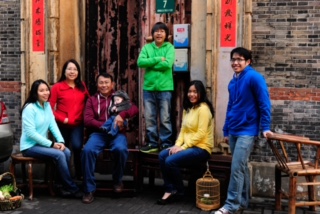
The Leow family with one of the babies they fostered in Shanghai.
The Red Tide
In 2010, Leow was reading the papers when news about the red tide phenomenon in Singapore caught his eye.
The phenomenon arose out of an unexpected population explosion of algae or plankton in the water. After a bloom, the plankton died and decomposed, and the bacteria used up dissolved oxygen in the water, causing fish to suffocate and resulting in mass fish deaths in Singapore farms that year.
At that time, Leow empathised with the plight of the farmers in Singapore. He was friends with some prawn farmers in China and was aware of how poor water quality often affected their produce. To combat such issues, the Government then was giving grants to companies to come up with closed containment systems instead of the current floating net cage systems that subjected the fishes to environmental vagaries.
“I named the system after Noah and his Ark because God made a covenant with Noah in Genesis.”
Given his training as a marine engineer, Leow began brainstorming and putting his skills and knowledge in marine and offshore technology, automation and water treatment to good use to develop solutions to the problem. It was a passion project that he undertook on the side, not expecting much of it.
By 2013, he had come up with a closed containment aquaculture system, called Eco-Ark, that uses a Novel Offshore Advanced Hull system (NOAHs).
Water from the sea is drawn in through three large pumps and filtered with ozone technology which kills off all pathogens in the sea water. The water passes through the four fish tanks and a second filtration system purifies fish waste and fish feed from the water and returns it to the sea, minimising impact on the environment. Its farming processes also consumes less energy and requires less space than conventional fish farms and yet be able to produce a harvest of fish up to 20 times that of coastal farms.
“I named the system after Noah and his Ark because God made a covenant with Noah in Genesis and Man was given dominion over every creature … including all the fish in the sea and He promised them that everything that lives and moves about will be food for them,” said Leow.
Excited at the immense potential of his inventions, he decided to quit his high paying job in 2013 to pursue his dream of feeding humanity.
Some of his colleagues and friends were puzzled at his decision and urged him to reconsider.
“I was 55 years old then and still had expenses like putting my child through medical school. Others my age would be thinking how to earn as much money as they can in order to enjoy a luxurious retirement soon. I was taking quite a bit of a risk,” said Leow.
Over the next two years, he began applying for global patents for his systems and tried to interest fish farmers to buy his technology.
In 2013, he decided to quit his high paying job to pursue his dream of feeding humanity.
The farmers who were used to the old way of doing things had their doubts about the newfangled technology and were not keen to buy it. Leow also failed to get a grant from a foundation to help with funding.
Nonetheless, he pressed on as he believed in his idea.
A breakthrough came in 2018. The private apartment that Leow lived in went en bloc and he used the proceeds from the sale of his house to fund the building of Eco-Ark, a high-tech fish farm platform that is anchored about 5km off Changi Point ferry terminal.
“I was quite sure that I was not called to be a farmer, but since God opened this door and made a way, I took the plunge to do it even though I was already 60 years old and should be enjoying my retirement instead. I became ‘homeless’ in the process,” said Leow. He and his wife now bunk in their son’s Built-To-Order (BTO) flat as he is currently living overseas.
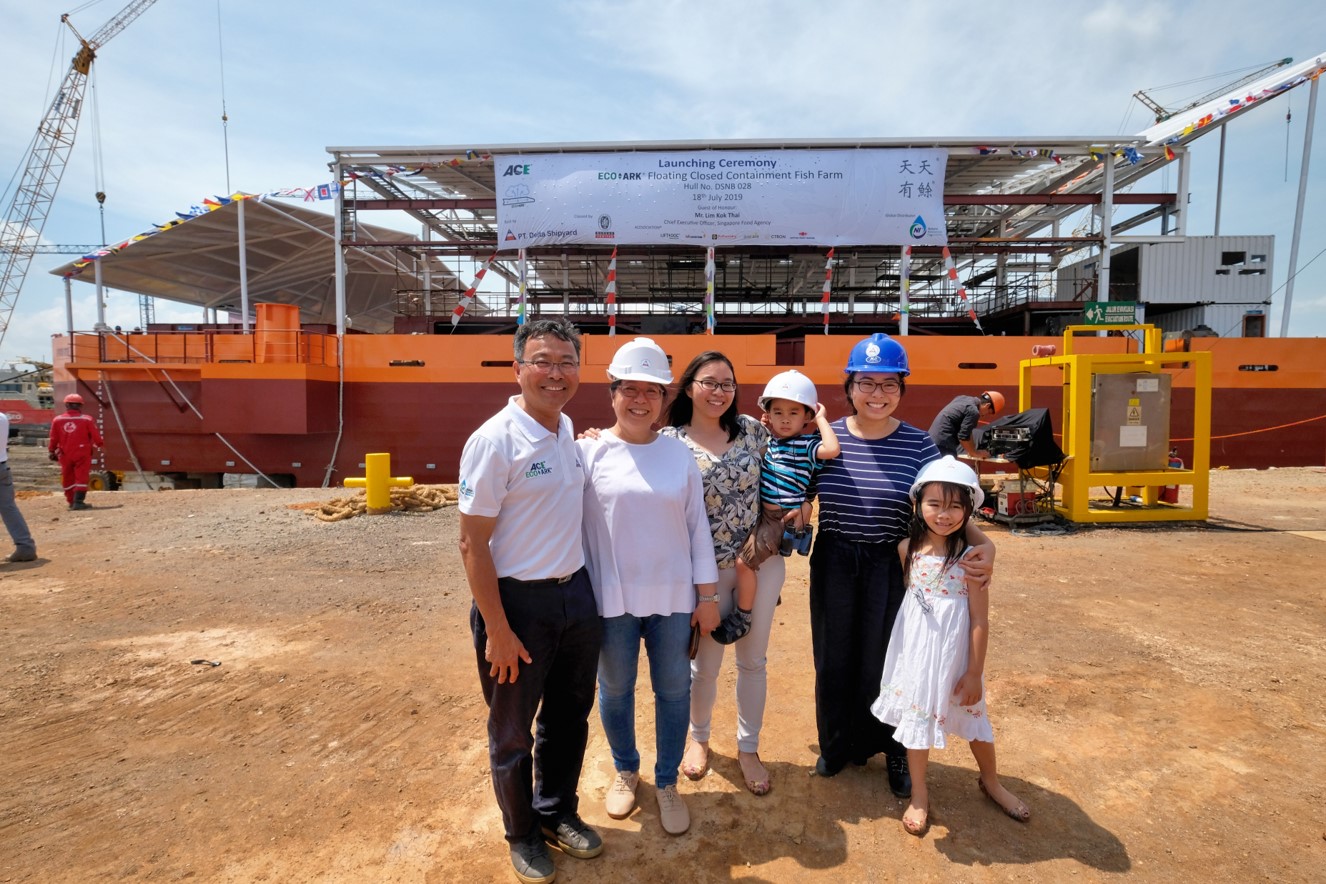
Mr Leow with his wife, daughters and grandchildren at the launch of Eco-Ark in 2019. Below is a video of the rainbow that appeared the day Eco-Ark was installed in the waters off Changi.
Eco-Ark was installed in the waters on October 24, 2019. Leow remembered that day very well as the installation was met with a four-hour delay and he was stressed because the workers had to legally stop work at 6pm. That evening, a rainbow stretched across the sky, above the Eco-Ark.
“God made a covenant with Noah with the sign of a rainbow. So I felt that the rainbow that day was His sign to me to trust Him and that He will see me through,” said Leow.
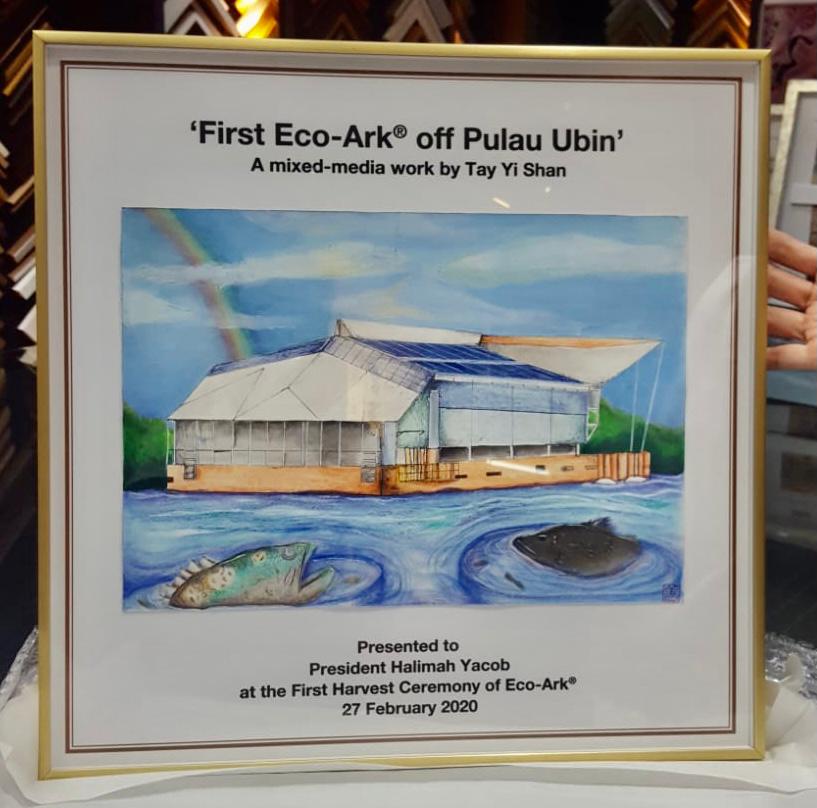
“First Eco-Ark off Pulau Ubin” by Tay Yi Shan is a mixed media work of colour pencils, watercolour and acrylic. The blue portion denotes the farm’s solar panels. The rainbow is a representation of an actual rainbow that appeared on the day the Eco-Ark was installed off Pulau Ubin on October 24, 2019.
Over the last four years, he struggled to cover operational expenses and could not give his staff pay increments. His wife was also diagnosed with a severe immunological condition that left her unable to walk for a period of time. Fortunately, his company, ACE Group, has since managed to secure some funding by tapping on the Agriculture Productivity Fund from the Singapore Food Agency.
His sweat and tears are paying off today.
Eco-Ark is now the world’s first integrated floating containment farm. Though the $4 million farm is contained only within a platform that measures 48m by 28m, it is expected to produce 166 tonnes of fish a year. It is also able to host the whole farming process – from eggs to preparing the fish for sale – all within the small platform.
Its first batch of produce of 24 tonnes of sea bass, equivalent to about 28,000 fish, was harvested last month.
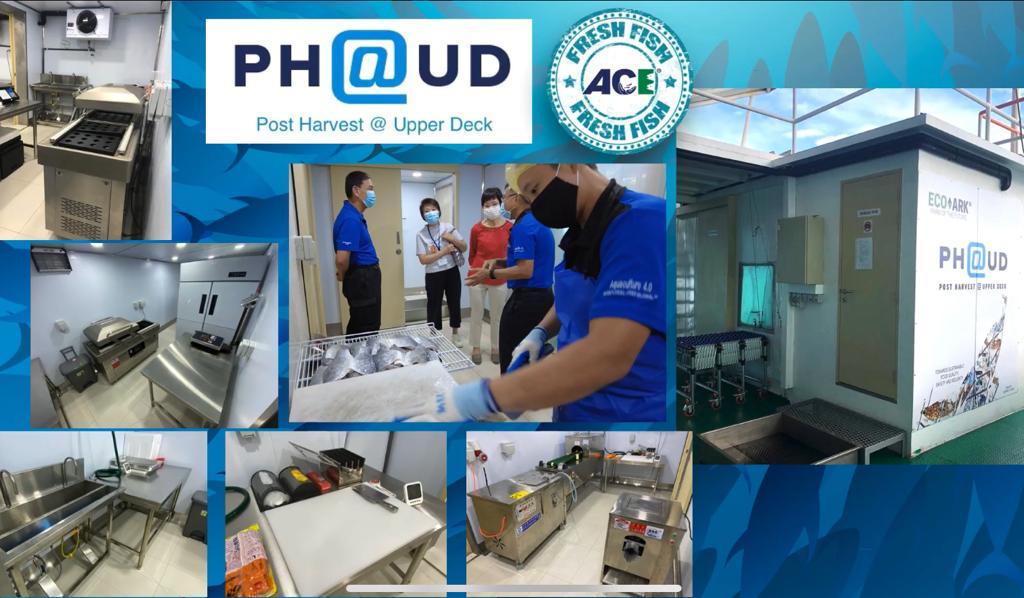
Fish being prepared at the processing hub of ACE farm.
In light of Singapore’s ’30 by 30′ goal to produce 30% of its nutritional needs through locally farmed food by 2030, Deputy Prime Minister Heng Swee Keat cited Eco-Ark in his budget speech last month as a good example of how technology can be used to enhance food security and sustainability. Several media outlets have also featured Eco-Ark.
“My tough time in Brazil and the scary decision to empty out all my money at the age of 60 were experiences guided by God.”
Though Leow’s firm is still struggling to cover its operational expense after its business was hit by Covid, things are looking up. By July, he intends to operate two more Eco-Ark fish farms and a nursery in Singapore.
His fish products are being sold online and in some grocery stores. By next month, major supermarket chains such as NTUC FairPrice and Sheng Siong would also carry its products.
Looking back on his life, Leow feels that God can use failure, dire circumstances and faith to direct and draw a person to where He wants him to be.
“My tough time in Brazil and the scary decision to empty out all my money at the age of 60 and stake it on a new business idea were all experiences that were guided by God to step into my calling of providing wholesome food to people and stewarding his natural resources well,” said Leow.
“The good Lord has been ever faithful to supply my needs and may He find me faithful till we meet face to face.”
The verses in Psalm 24: 4-5 which speaks of David dwelling in the house of the Lord and God keeping him safe in times of trouble and “setting (him) high upon a rock” are significant to Leow.
He joked: “My rock is now in the waters next to Pulau Ubin.” Then added: “But my true Rock is Christ.”
We are an independent, non-profit organisation that relies on the generosity of our readers, such as yourself, to continue serving the kingdom. Every dollar donated goes directly back into our editorial coverage.
Would you consider partnering with us in our kingdom work by supporting us financially, either as a one-off donation, or a recurring pledge?
Support Salt&Light